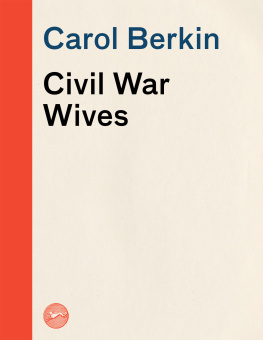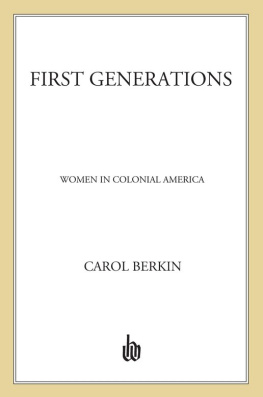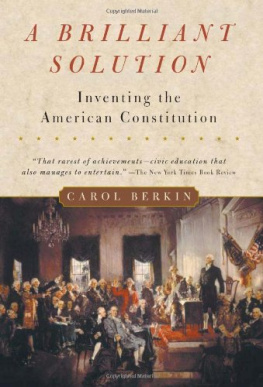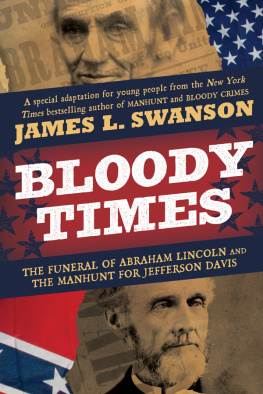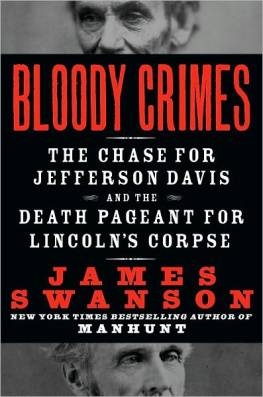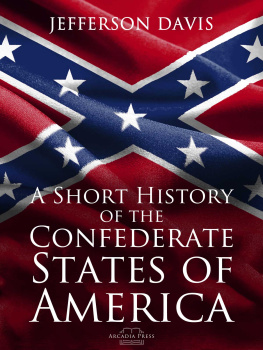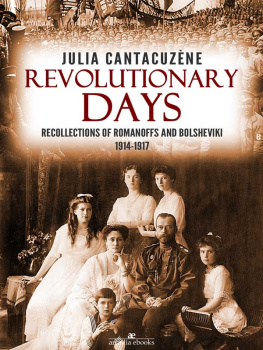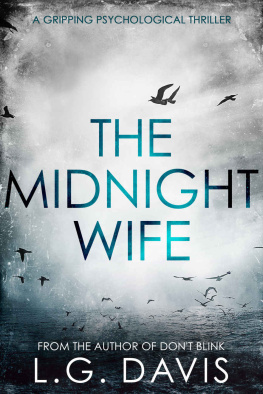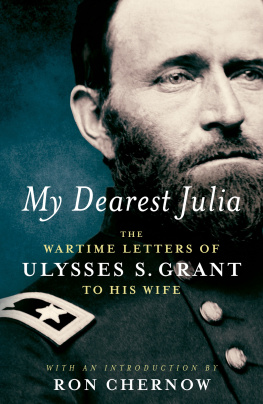Carol Berkin - Civil War Wives
Here you can read online Carol Berkin - Civil War Wives full text of the book (entire story) in english for free. Download pdf and epub, get meaning, cover and reviews about this ebook. year: 2009, publisher: Knopf Doubleday Publishing Group, genre: Non-fiction. Description of the work, (preface) as well as reviews are available. Best literature library LitArk.com created for fans of good reading and offers a wide selection of genres:
Romance novel
Science fiction
Adventure
Detective
Science
History
Home and family
Prose
Art
Politics
Computer
Non-fiction
Religion
Business
Children
Humor
Choose a favorite category and find really read worthwhile books. Enjoy immersion in the world of imagination, feel the emotions of the characters or learn something new for yourself, make an fascinating discovery.
- Book:Civil War Wives
- Author:
- Publisher:Knopf Doubleday Publishing Group
- Genre:
- Year:2009
- Rating:4 / 5
- Favourites:Add to favourites
- Your mark:
- 80
- 1
- 2
- 3
- 4
- 5
Civil War Wives: summary, description and annotation
We offer to read an annotation, description, summary or preface (depends on what the author of the book "Civil War Wives" wrote himself). If you haven't found the necessary information about the book — write in the comments, we will try to find it.
In these moving stories if Angelina Grimk Weld, wife of abolitionist Theodore Weld, Varina Howell Davis, wife of Confederate president Jefferson Davis, and Julia Dent grant, wife of Ulysses S. Grant, Carol Berkin reveals how women understood the cataclysmic events of their day. Their stories, taken together, help reconstruct the era of the Civil War with a greater depth and complexity by adding womens experiences and voices to their male counterparts.
Civil War Wives — read online for free the complete book (whole text) full work
Below is the text of the book, divided by pages. System saving the place of the last page read, allows you to conveniently read the book "Civil War Wives" online for free, without having to search again every time where you left off. Put a bookmark, and you can go to the page where you finished reading at any time.
Font size:
Interval:
Bookmark:
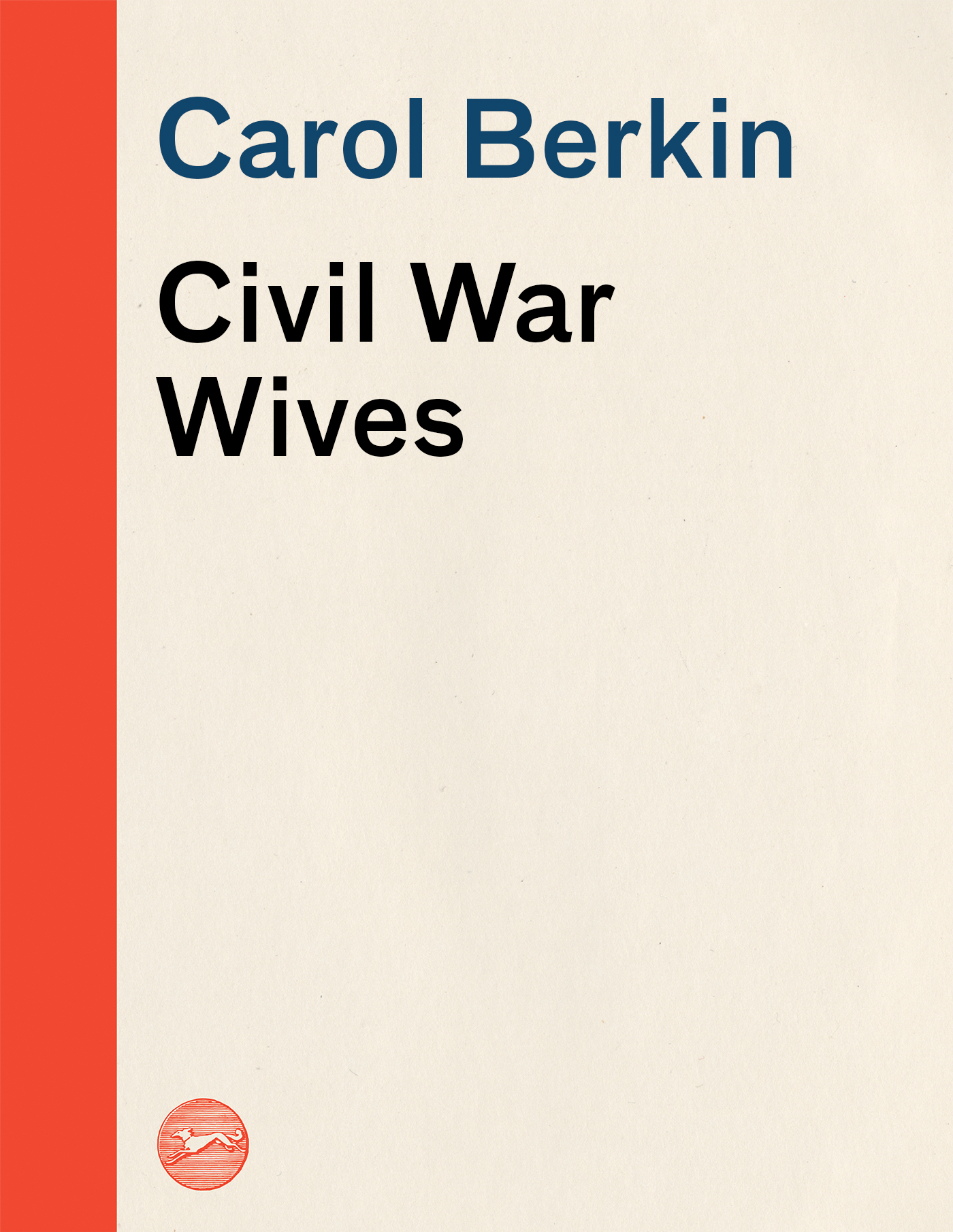
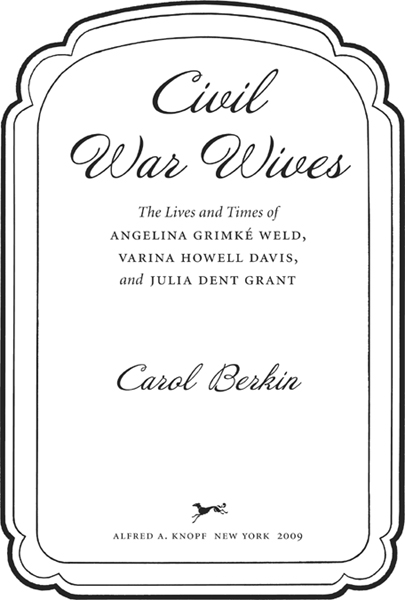
Revolutionary Mothers:
Women in the Struggle for Americas Independence
A Brilliant Solution:
Inventing the American Constitution
First Generations:
Women in Colonial America
Jonathan Sewall:
Odyssey of an American Loyalist
To Hannah and Matthew,
The Best of My Past, Present, and Future
ONE
TWO
THREE
THE NAMES AND DEEDS of the politicians, statesmen, generals, and reformers of the Civil War era are familiar to most Americans. Lincoln, Douglass, Lee, Grant, Davis, Sherman, Calhoun, Clay, Jackson, Weld, and Garrison they are part of a history written and rewritten by every generation since the war began. Bookshelves teem with biographies and with narratives and analyses of the political crises in which these larger-than-life figures shaped our national destiny. Almost 150 years after the war, thousands of American families visit the battlefields where blue and gray waged their desperate struggles or watch reenactors bring those battles to life once again. Thousands more visit the homes and churches where African Americans found shelter as they escaped to freedom. In countless monuments, in songs and flags, and in museums and shrines, we honor the memory of causes both lost and won.
Over the past few decades, the stories of ordinary men and women have been added to the history of our nations epic crisis. Social historians have helped us grow familiar with the experiences of common soldiers, wives and mothers, field hands and factory workers, immigrants and native sons and daughters. Although these nineteenth-century women and men did not hold the reins of power, their lives were changed forever by the end of slavery, the promise and failure of Reconstruction, the decline of the Cotton Kingdom and the rise of industrial America, widowhood and mourning, and the challenges to gender and racial roles that followed as modern America took shape. The portraits that have emerged have been, of necessity, collective more often than individual, for few of these Americans left behind the rich records bequeathed to us by presidents, generals, and reformers. Their stories come to us in a rich collective tapestry, woven together from the fragments each left behind.
The women who are the subject of this book stand between the powerful and the anonymous, the famous and the ordinary. Their lives were in many ways privileged, but in others they were anomalous, for through their marriages to leading figures they had access to the seats of power but no power themselves. Their positions in society gave them a unique perspective on the decisions and events that changed their world. Their marriages gave them intimate knowledge of the men who made those decisions and shaped those events. They were white and thus they were free, yet marriage and motherhood created barriers to their autonomy that only spinsterhood or widowhood could overcome. In their privileged yet restricted lives, they have much to tell us about their era if we listen to their voices and recover their stories.
The origins of this book lay in a series of questions: What would the memoirs, letters, and diaries of such women reveal? How did women who had intimate knowledge of statesmen, generals, and reformers judge these men in their public and private roles? How did women who were in the public eye adjust to the rapid social change and the challenges to customary beliefs and behaviors? And how did marriage shape the choices they made over long and complex lives?
I began with an extensive list of potential subjects for this bookand quickly found their numbers dwindling. Some, such as Mary Lincoln, are studies in idiosyncracy if not madness; others, including Mary Anna Lee, wife of Robert E. Lee, did not leave behind the sources needed to tell their stories. I did not want to reconstruct a lunar landscape, filled with women who could be known only in the reflected light of their husbands commentary. In the end, there proved to be few women who left behind the records that would allow me and my readers to hear their voices clearly and see their world as they saw it. From among them, three women emerged as my subjects: Angelina Grimk Weld, Varina Howell Davis, and Julia Dent Grant.
Although each of these three women left richly detailed and revealing accounts of her life, there are important differences in these sources. Angelina Grimk Weld left a record of her thoughts in real time, in the diary she kept as a young woman in South Carolina, in the letters she wrote, and in the essays and speeches she produced in the causes of abolition, racial equality, and womens rights. Varina Howell Daviss life can be narrated from both real-time letters and from the memoirs she wrote as an aging widow. Julia Dent Grants life, however, must be reconstructed primarily from the memories she set down in old age, for she wrote few letters and not many of them have survived. Memory, of course, can be faulty and memoirs can have agendas that make them suspect. Even diaries can present desired personas rather than true identities. Yet Angelina, Varina, and Julia reveal much about themselves as they narrate their own stories, and, because they were in the public eye, contemporaries commented on everything from their personalities to their diets to the way they raised their children. All these sources, along with decades of literature produced by historians of the era, have been marshaled to tell these stories.
As individuals, these women differed greatly in personality, character, temperament, and intellect. The winds of change that blew within their lifetimes carried them down quite different paths. Yet the paths they chose and the paths chosen for them by their husbands illustrate both the limitations and the possibilities for married white women in an age that saw both reform and reaction, rapid change and a rising nostalgia for the past. More often than not, things did not turn out in their lives as they might have hoped or planned. Angelina Grimk embraced both the antislavery movement of the 1830s and the man who most famously represented it, and for a brief moment she became a central figure in the struggle for abolition. But if marriage to Theodore Weld solidified her place in the reform community, it also limited her participation and silenced her public voice. Varina Howell nurtured her intellect as a young woman and believed that the man she married loved her independent mind and spirit. But in her marriage to Jefferson Davis she found herself the frequent object of his disapproval and criticism because she would not behave as an obedient wife. Alone among these three women, Julia Dent seemed content with the restrictions marriage placed upon her. She was fortunate to marry Ulysses S. Grant, a man who, like herself, accepted the social norms and conventions of the day. Julia embraced the status quo, resisted change until it could no longer be ignored or repelled, and only late in life caught a fleeting glimpse of the price of the perpetual dependency that had defined her.
Over the months, as their biographies took shape, I came to know these three women with the intimacy that biographers often acquire and with an affection that biographers do not always sustain. Angelinas bravery won my respect, Varinas brilliance won my admiration, and Julias contentment won my envy. Each performed remarkable deeds, some of their own initiative, others in response to the exigencies of the moment. Each made striking sacrifices to husband and family and saw this as their duty. For whether they struggled against the limits set on their autonomy and independence because they were women or took comfort and satisfaction in those limits, their lives played out in response to social conventions and ideals they could never fully escape. For this reason, they viewed the events of their lifetime through a very different prism than did their famous husbands, and that is one reason why their story must be told.
Font size:
Interval:
Bookmark:
Similar books «Civil War Wives»
Look at similar books to Civil War Wives. We have selected literature similar in name and meaning in the hope of providing readers with more options to find new, interesting, not yet read works.
Discussion, reviews of the book Civil War Wives and just readers' own opinions. Leave your comments, write what you think about the work, its meaning or the main characters. Specify what exactly you liked and what you didn't like, and why you think so.

